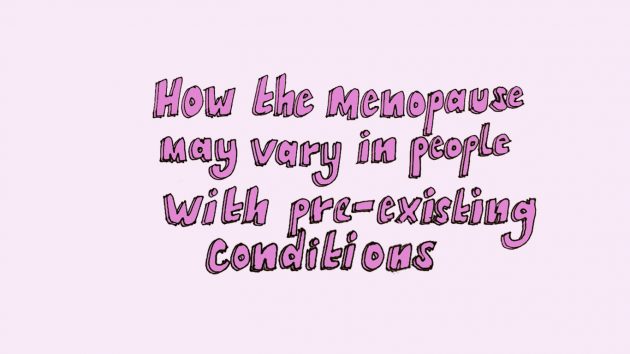

How the menopause may vary in people with pre-existing conditions
Mr Narendra Pisal, consultant gynaecologist at London Gynaecology, reveals what people can expect and what it is like to go through the menopause with health conditions such as endometriosis, polycystic ovary syndrome (PCOS), fibroids and after undergoing a hysterectomy.
Menopause with endometriosis
Menopause may come as a relief for some women with endometriosis who suffer from painful and heavy periods during their reproductive lives. Stopping of periods may be a blessing, but other symptoms of menopause can still be overwhelming.
Menopause with PCOS
Polycystic Ovary Syndrome is now recognised as a metabolic disease with implications beyond the ovaries and fertility. Menopause with PCOS may be associated with weight gain, hypertension and Diabetes Mellitus. The underlying cause of PCOS is insulin resistance and a long-term lifestyle of exercise and nutritional change is needed to delay or prevent these conditions. Unopposed oestrogen with no progesterone due to lack of ovulation over the years will also increase the risk of endometrial stimulation and cancer of the lining of the womb. A careful assessment at 50 with an ongoing plan for later years is needed.
Menopause with fibroids
Fibroids are oestrogen-dependent benign tumours arising from the muscle layer of the womb. With decreasing levels of oestrogen, fibroids often shrink in size and the symptoms (see London-fibroids.com) will also improve after menopause.
Taking HRT in presence of fibroids can be complicated due to increased risk of growth and symptoms of fibroids. I would recommend careful monitoring with annual scans. If the fibroids start growing after menopause, it could be a sign of sarcomatous (malignant) change.
Menopause with hysterectomy
If ovaries are removed with hysterectomy, an abrupt surgical menopause may ensue with acute onset of troublesome menopausal symptoms. A prior discussion with your gynaecologist regarding HRT options would be helpful. If you are planning to have ovaries conserved, your gynaecologist still may suggest removal of fallopian tubes at the time of hysterectomy as it reduces the risk of ovarian cancer!
The average age of menopause is brought forward approximately by a year after hysterectomy.
If cervix is conserved (as in subtotal hysterectomy), you will need to continue having smears. Also, a combined (oestrogen and progesterone) HRT is indicated as some endometrium may be left behind at the top end of the cervix when a subtotal hysterectomy is performed. Whereas, if the cervix is removed (as in total hysterectomy), oestrogen only HRT is indicated.
Make an appointment
If you would like to book a consultation with Mr Narendra Pisal or any other member of the London Gynaecology team, please call 0207 10 11 700 or email [email protected]



